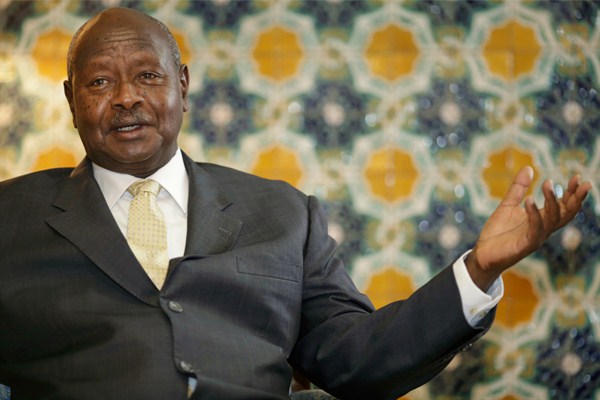Ugandan President Yoweri Museveni is treating his country’s election later this month as a coronation, not a contest, happy to cultivate the impression that the five-year extension to his already 30-year rule is all but a done deal. But the arrest this past weekend of a prominent general turned regime critic is the latest sign that Museveni’s camp is more worried about the vote—and its aftermath—than they are letting on.
Ahead of the Feb. 18 ballot, Museveni has been running a goodwill tour of a campaign. Traveling from town to town under a banner of “Steady Progress,” he is pledging new schools and health centers and better roads, all while deflecting blame for any failings over the past three decades onto whichever target is at hand, especially voters who supported the opposition in previous elections.
When he’s even willing to acknowledge that his seven opponents in the presidential race exist, it’s usually to belittle them. Instead of simply noting his packed schedule and begging his way out of a live debate in mid-January, Museveni was quoted telling reporters, “This system of going into competition for speaking is for high school.”

